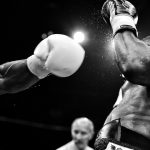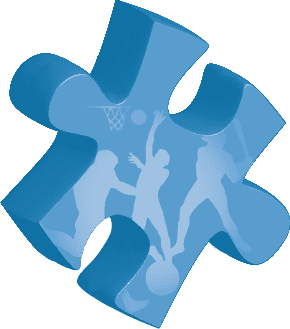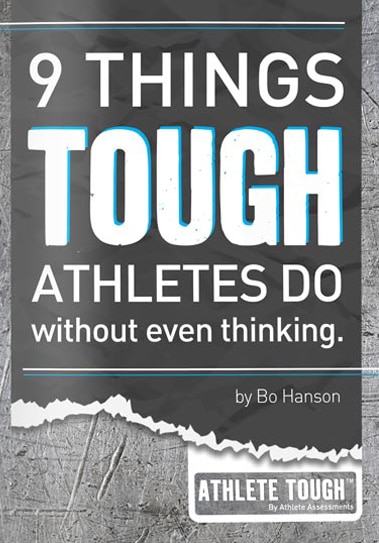Mental Toughness, resilience, and grit are not naturally occurring attributes that cannot be taught, they are in fact, teachable skills that athletes and coaches can develop in sport, as well as in life.
I released the ATHLETE TOUGHTM Handbook and Video Series with the aim of helping people understand that mental skills and toughness are not just mythical qualities that some are born with and others are not.
ATHLETE TOUGHTM endeavors to achieve exactly that – developing an athlete’s resilience and ability to remain tough, no matter the challenge. The mental skills required to become ATHLETE TOUGHTM are defined in the ATHLETE TOUGHTM Handbook and accompanying Video Series, which shows how these can be taught and practiced through a series of proven strategies that I learned during my career as an Olympic athlete.
In this article I explain what it means to be ATHLETE TOUGHTM, and I expand on a central component that you need on your way to developing mental toughness. You must find your purpose, or what I refer to as ‘Your Big Why’.
This is the key to staying tough.
In my experience, both in athletic and corporate environments, those who exhibit ‘toughness’ in their behavior had an underlying resolve to achieve a clear purpose. Their drive to achieve something, their willingness to perform against high expectations, meet someone else’s demands or fulfill a dream. How tough these people were was directly related to their motivation for achieving something of great significance to them. Like the saying, “where there’s a will, there’s a way”, if our motivation is high enough, we will generally find a way to ‘get it done’. Having this deeper purpose is the fundamental factor in developing mental toughness.
Another term we must understand within the concept of becoming ATHLETE TOUGHTM is grit. Recently I have been encountering the topic of ‘grit’ a lot. Grit underpins many aspects of performance and is recognized as a primary contributor to achieving success. I can understand how such an important attribute is perceived as only existing within elite soldiers, athletes, coaches, or entrepreneurs and this just isn’t shared among ‘normal’ people. However, this could not be further from the truth. What most people will find is that they have demonstrated high-performance levels of grit, resilience, and toughness at various stages of their lives, even if only briefly.
So, it is not whether someone does or does not have grit, because we all do, what matters is having the right circumstances and environmental conditions. It is crucial to understand that the environments in which we can develop toughness are those where we can pursue our true purpose, or achieve our greatest sense of meaning and contribution. Being able to operate in these conditions inspires us to apply our greatest efforts and overcome whatever obstacles emerge along the way. I will repeat again, finding ’Your Big Why’ is key to building mental toughness.
Research has shown that 80% of outcomes are determined by knowing the ‘why’ behind your desire to achieve the outcome to begin with. The deeper your connection and understanding of your reason ’why’, the more likely you are to apply maximum effort to accomplish your goal.
I recall first dreaming of becoming an Olympian. There was nothing I wanted to achieve more at the time. It was not just a passion or even a high-level interest, it was far deeper than that and it needed to be. My motivations to become an Olympian were associated with a strong desire to achieve, the need for status (having never won a race at school or felt what it was like to achieve at a high-performance level) and to prove to that I could do “anything”, despite what others said. The desire to achieve these goals formed my ‘Big Why’. Once you can identify and connect with your big reason WHY, it helps prioritize your decisions in life. I knew that there was nothing I would rather do than row at an elite level and find whatever it took to become better at rowing a boat. This drive made it easy to tell friends no when they asked me to head out or party, even career choices and study didn’t seem relevant at the time – I could pass it all up without a second thought.
To become an Olympian at the age of 18 was not difficult in the sense of having to manage the demands of competing at that level. That is not to say practices were easy, they were not. But I found myself pumped and excited to get better and stay focused on my goal.
However, I recognize that finding something which captivated me in the way rowing did is perhaps not normal to some. In fact, I am now three (almost four) Olympic cycles (14 years) down the track since retiring from my athletic career, and the experience of building a business from the ground up has changed my perspective what it means to be tough. I have learned that our toughness can soften over time if we are not vigilant in changing ourselves and finding ways to step outside our comfort zone. We can often fall out of touch with our sense of purpose, become distracted and lose sight of our ‘Big Why’. This can result in a wavering of our motivation to ‘push on’ and test our limits. When this occurs, and I’m sure you can relate to these as much as I do, whether in sport or business, we need reliable toughness strategies that we can use to rediscover our goals and rekindle our drive. Personally, I found that recalling my rowing practices helped me overcome many obstacles in my sporting career, as well as in my business and working life. Remembering these moments reminded me that, no matter the challenge, to succeed we require focus, or short term technical/measurable goals to keep us on task and avoid succumbing to the endless distractions or obstacles that life can bring. It’s important to note that being able to recall these experiences immediately, in moments of struggle, means we need to have practiced. Keep in mind however, many environmental conditions do not exist in your circle of control, meaning sometimes the best option is to find a way to adapt to new conditions using effective toughness strategies.
There are many components that can have an adverse effect on your environments, including issues in your coach or manager relationships, issues with teammates, frustration with malfunctioning technology, illness and injury, negativity, and doubt from others, I could go on. Staying tough when faced with these obstacles is what it means to be ATHLETE TOUGHTM.
Previously, I have mentioned in other articles about the Navy SEALs toughness strategy. They use a four-part method which involves short term goals, positive self-talk, visualizing success and managing your emotions through quality breathing techniques and retaining perspective. This strategy alone is very effective in improving toughness, but a lot of my work has included identifying how other really tough people exhibit this in their behaviors too.
In addition to understanding their big reason WHY, tough people do not identify their toughness solely by the behaviors that they exhibit. Toughness is not just how they act, instead it is intrinsic to who they are and how being tough defines them as person. Toughness becomes their identity. Saying, “I am tough” reflects who you are, not just what you do. Tough people identify themselves as such and will have a bank of experiences they can constantly refer to remind them of their tough identity. For example, whenever a difficult situation arises, their first reaction is to recall a time where they confronted a challenge and created a positive outcome. This reinforces their sense of identity and the confidence that they can handle whatever comes their way. This extends to new experiences that are not even directly related to past experiences, they just know their toughness will see them through. Toughness is inherent in who they are and how they do what they do.
Being ATHLETE TOUGHTM means learning to reframe situations quickly. Reframing involves changing (reframing) your perspective on something. Whenever we have an experience, we automatically associate or attach to it some form of meaning. When we reflect or explain what happened we describe it as positive, negative, great, poor, and so on. If someone else was to experience the same thing, they may find an entirely different meaning to it. We see this in the moments a coach provides direct feedback to a player. One player might come away thinking “great, I now understand what I need to do better,” another player may feel, “the coach is upset with me so I must not be performing well, which could mean I will be benched soon, and this means…” The point is we get to choose what meaning we attach to our experiences. However, most of us lack the self-awareness to identify what we are attaching, which is primarily a problem with negative associations. Learning to reframe does not imply the need to attach a positive meaning to everything, instead it focuses on finding a ‘useful’ meaning, which you can turn into something productive. For example, when you lose a game, you can search for a learning outcome such as, “this loss must indicate we need to improve in some way, what should we focus on to improve?” This is far more helpful than thinking, “we are not good enough so we just should give up.” Some common reframes are failure – learning, why – how, I can’t – what can I do. If I was in a race and a crew was in front of me at the halfway mark, I learnt to see that as an opportunity to finish well. I would tell myself they would have spent a lot of energy to get this lead and if I push now, I will break them over the next 1000m. Even if it takes 999 meters to get there, I will finish in front.
The last factor I want to discuss in those who are ATHLETE TOUGHTM, is the environment in which tough people practice and grow up in. There is a well-known phrase today which says, “the advantage of disadvantage”. This refers to the way coaches or managers today can shelter their athletes or employees. Some coaches or managers will find ways to make the lives of their athletes or employees more comfortable with the belief that this will help their performance. Instead, the more we try to make life more comfortable for others, the more we inhibit their ability to develop toughness. Discomfort is the lifeblood of being tough. Note that I said discomfort not unsafe. Coaches and managers are only doing a disservice to their athletes and people by doing too much for their comfort. This also goes for parents who sort out their children’s problems for them, rather than encouraging an environment for them to become resilient or tough people that can handle life’s challenges.
It is crucial to remember that we all possess the ability to be tough, we just have to practice it and link it to our own identities and purpose. At some point we all must have challenges and adverse environmental conditions, but just imagine the fulfillment of rising to meet them and achieving your best.
Read more about becoming ATHLETE TOUGH™ here.
Why Your big reason ‘WHY?’ Better Be A Good One
The motivation to practice, perform and continually improve is common to elite athletes, soldiers, and people. Sometimes talented athletes already possess it, sometimes not, but it can be developed. One mechanism that athletes can lever, is their reason for doing what they do, or their big reason WHY.
WHERE TO FROM HERE?
Created by Bo Hanson, the ATHLETE TOUGHTM Handbook and Video Series is your go-to guide for developing mental skills and toughness in your athletes. Being ATHLETE TOUGHTM is defined by the actions you take when your performance matters the most. This unique and proven program is designed to ensure your athletes never give up, never quit on their team, and never quit on themselves. It will deliver strategies on how to be mentally resilient and provide step-by-step processes to help your athletes become and stay mentally strong.
Recommended Articles

The Importance of Mental Skills in Preparing Your Athletes for Success
People often put too much emphasis on the physical components of a sports program, without acknowledging that the mental skills which athletes frequently lack are just as critical for success.

Strategies for Building Accountability in Your Team Culture
In sport, accountability means following through on what you say you will do, and executing the task to the best of your ability. It also means, if you don’t get it right, then you stand up to say, “this is how I can do better” and find a way to improve.
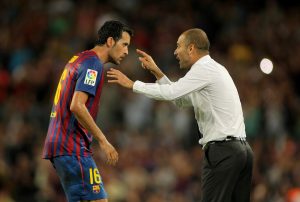
Bullying Your Athletes Will Not Make Them ‘Tougher’
Using bullying as a tactic to develop mental skills or toughness is not effective for achieving long term results. During an interview with Dr Jen Fraser, for the End Bullying and Abuse in Sports Summit, Director and Senior Consultant at Athlete Assessments, Bo Hanson, explains Coaches who use bullying tactics will not attain long-term results or succeed in developing the personal growth, mental skills, or mental toughness of their athletes.
